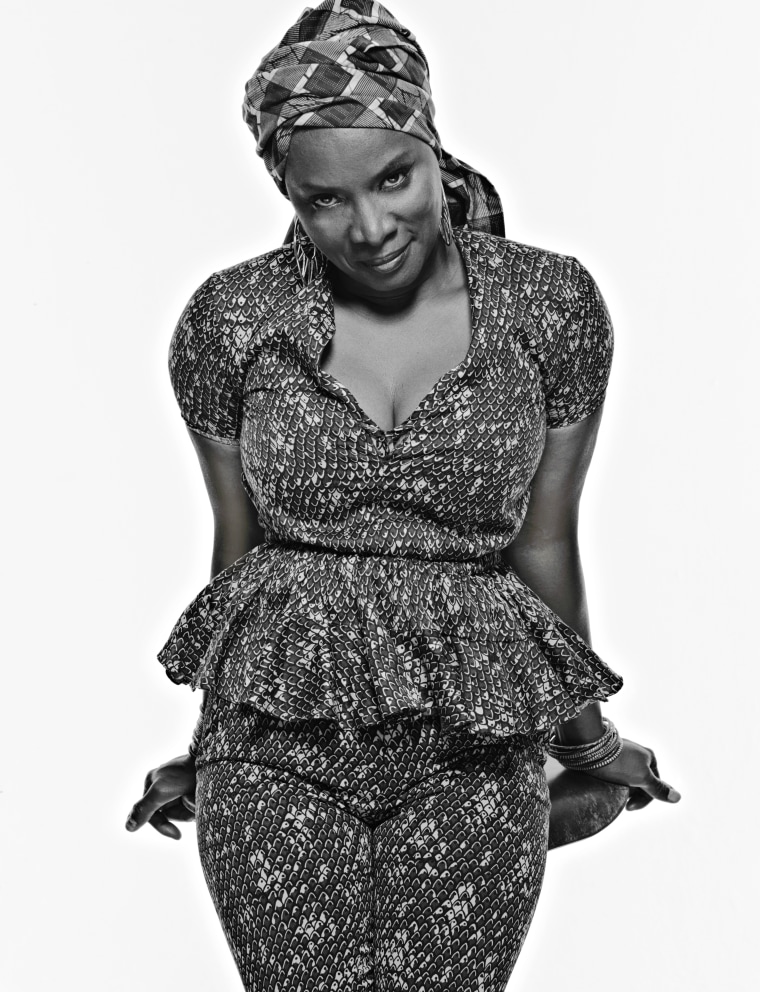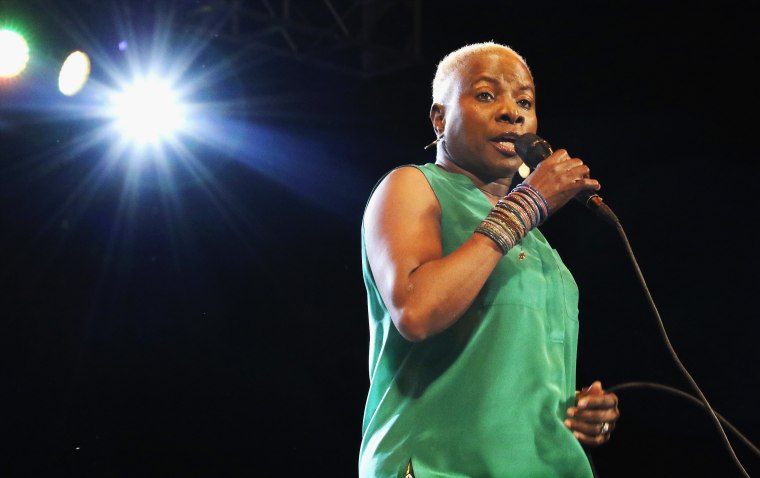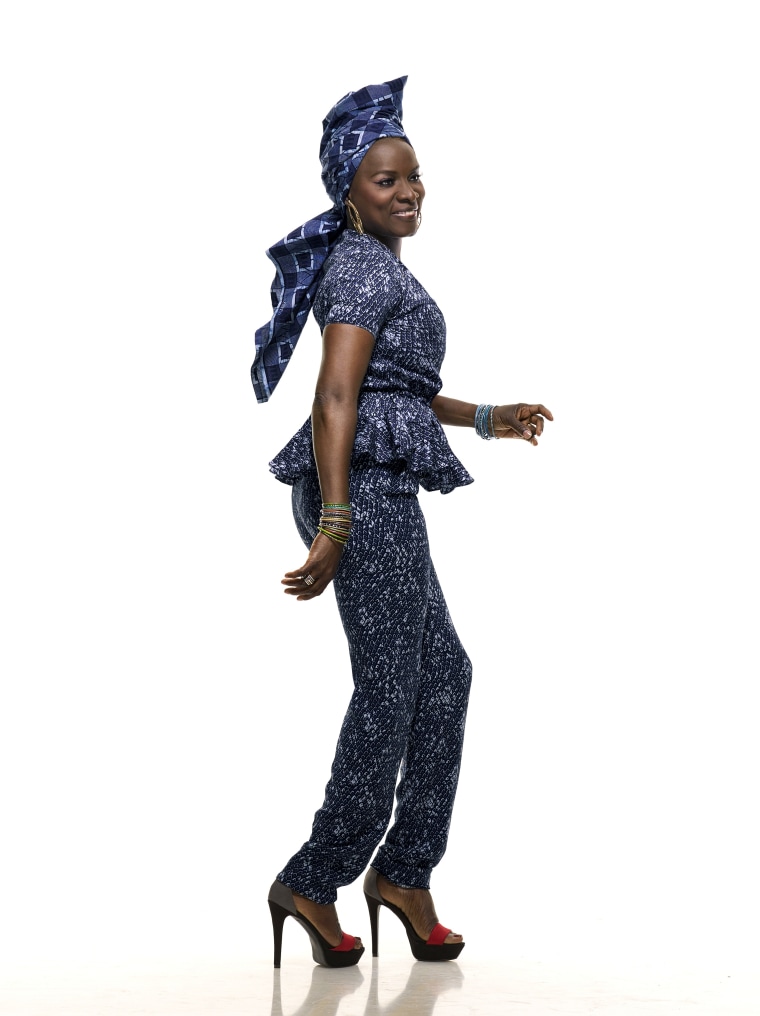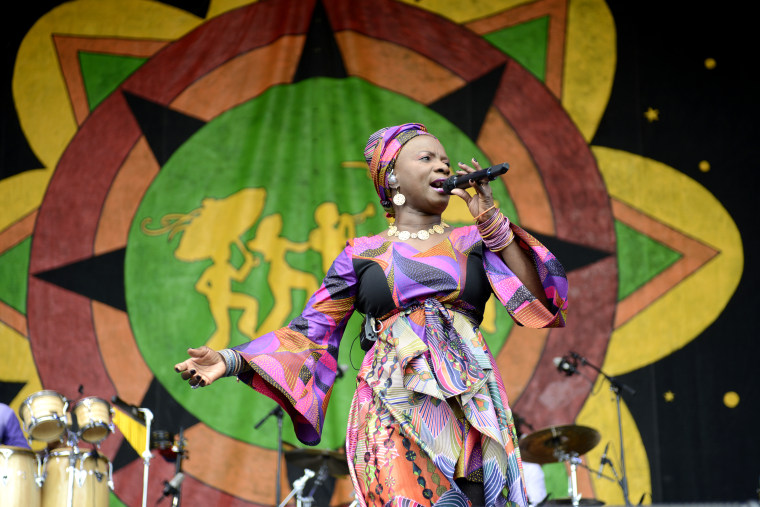Singer-songwriter Angélique Kidjo is widely considered one of the greatest artists in international music today.
The now three-time Grammy winner took home her latest musical honor in the Best World Music category for her song, "Sings" during music’s biggest night this spring.
Kidjo’s impressive career has spanned over three decades with more than a dozen albums recorded across genres, countless sold-out shows around the world and collaborations with everyone from Bono and Alicia Keys to John Legend and Ziggy Marley.
Often described as “The undisputed queen of African music,” the Benin-born songstress is not only internationally known for her soulful voice, high-energy performances and fluency in four languages —but also for her advocacy.
Kidjo has been a UNICEF Goodwill Ambassador since 2002, using her platform to highlight major issues affecting people in several African countries. She also started the Batonga Foundation, to help fund and support education for young girls in Africa in 2006.

NBCBLK recently spoke with Kidjo about music’s role in influencing social change, her thoughts on the future of the Black Lives Matter movement, Kendrick Lamar's Grammy performance and her new role as anchor of “21ème Siècle” (21st Century) — a monthly news magazine show that will focus on often underreported international human rights issues.
NBCBLK: In your recent Grammy acceptance speech you said ‘this is what music is about. To bring doors and bridges and war down.’ In your opinion, how can music and the arts in general move conversations about social and political issues forward?
Angélique Kidjo: The power of music is something that as even as a singer/songwriter it scares the hell out of me. What happens when you are writing your music is that you are inspired to write that music and only God knows where that inspiration comes from. That’s the beauty of it too. When you’re in the truth of that inspiration, you are in charge of that music until it comes out. Once it comes out, you’ve got no more power over it.
It's like raising a child and that child grows up and leaves the house. That song helps you make decisions. That song helps people to see the world differently, to see their life differently; to deal with some issue that they have or are dealing with and that you don’t know when you are writing your song. You don’t have the power of seeing the journey of a song. There have been songs in our common memory that mean a lot to all of us in different ways because it coincides with some moment of social change that gives us hope to continue fighting for the rights of people. And, we tend to forget that and we [fast] forward, thinking that music has never been there for us.
When you were approached about anchoring the French version of the show 21st Century, how did you feel this role would be an important addition to your international advocacy efforts?
It was not a question for me because every time I go on a trip with UNICEF, OXFAM or Rotary Club... you see the work, the fantastic work that ordinary people do every day to bring change, to bring relief, to bring hope in people’s lives. And, it’s not shown on any big TV networks because they may feel no one is interested in those stories.
Africa is on the rise because we don’t wait for those coming. We live daily and we do what we have to do.
Africa is the continent the major news outlets have decided is going to be the continent of evil and everything that comes from Africa is negative. That’s why I say Africa is on the rise because we don’t wait for those coming. We live daily and we do what we have to do. There are a lot of things that happen, so for me to become an anchor is for me not only to sing about what I see anymore, the issues that are out there; but to also bring my voice to the table to let people know that the world is not as gloomy as it seems. There is hope out there and that we all, everybody individually has the power to change our world.
Since you have started producing the show 21st Century what has been your approach to telling the stories of significant global issues and how will you make connections that show viewers the importance of the plight of others in other countries?
You always have to give a voice to the people that you are trying to help.
The connection will be made by the way we tell the story. It’s not only going to be one side of the story because we know better. In the crisis of immigrants today in Europe, the immigrant has to speak. We have to hear from them. No one willingly leaves everything behind to go somewhere. If your home becomes hell on earth, it is your right to go somewhere else to rebuild yourself to be safe in order to come back to your country. That’s what the first show I taped was about.
For the first time, we went to those refugee places… You have to hear from them. You always have to give a voice to the people that you are trying to help.
The United Nations has declared 2015-2024 as the decade for people of African descent. How might the show highlight what the UN has stated as the need to strengthen the economic, social, cultural, civil and political rights of people of black people worldwide through some of the stories told?
The show can do that just by telling the achievements, the challenges and what else needs to be done and by also facing some of the problems on the way to achievement. Are we united? We are not, so it’s up to us to tell our narrative differently by being one people around the globe.
We need people to realize that silence in our society is a liability to our lives. If you have something to say, say it.
The story told from the slavers to the slave descendant is making us responsible for slavery. Slavery has been presented in Africa as a business venture. That’s how it started. Who came up with that idea? Here we are divided. Not understanding that, that divide was done on us because the power that we can have together is greater than what people expected. I think it’s going to help us also realize the potential of black people around the world and how we are willing despite our history and our pain to work with everyone.

The Black Lives Matter movement is often described as not just a civil rights movement, but a human rights movement. The want for full recognition of civil, social, political, legal, economic and cultural rights as outlined in the United Nations Universal Declaration of Human Rights. As an advocate for human rights, what are your thoughts on the movement and where it is now? What is your role in the movement?
We are in the 21st century and we still have to talk about [how] black lives matter. It means that something is deeply wrong...We have to work on education. We have to have all minorities to come and give their voice on what minorities go through in this country. Black people in America have not had the same opportunities as other communities. So for me as an advocate for education in Africa I think that’s going to be my role; to educate people about Black Lives Matter and to also talk about it in Africa because we want people to understand that the battles that are going on here in terms of Black Lives Matter, that it’s our battle too and we can bring it back here and do it together.
It cannot just be a movement of black people. It’s the movement of America if we are going to move forward.
The more we are, the stronger we are. We can change laws and really show that our lives matter. I always surprise people—not with violence—but through education and being articulate about what we want. What we feel that is needed to be done in this country. What we create is that we put the attention on us. Where we come from is a positive place because we feel there is a lot of stuff that can be done, but the way that it is perceived is that it is negative. How do we take that movement to the concern of each American? That’s where the challenge is… It cannot just be a movement of black people. It’s the movement of America if we are going to move forward.

What do you think of the controversy surrounding Beyoncé’s Super Bowl performance and Kendrick Lamar’s Grammy performance?
Angélique Kidjo: I have to say that being at the Grammy’s and seeing the map of my continent for the first time on primetime brings hope because always think that Africa is a country, but it’s a continent. We all come from Africa to a certain extent. I think we are no longer used to hearing music that has messages that can make us think about the reality that we are living. We are so used to music now that just talks about nonsense. We need people to realize that silence in our society is a liability to our lives. If you have something to say, say it. Everybody has their reality.
What are you hopes and dreams for the girls and young women throughout Africa and the diaspora?
I think that educating women of Africa and women of the diaspora are going to be game changing. For example, it’s proven today that when you educate a girl from primary education to tertiary education the GDP of a country rises. We have a different way to invest. We have a different perspective on life. We think different from men—thank God, that’s why we are partners… If we both think the same thing then we will hit a wall… Educating a woman today is an asset for economic revival, long lasting democracy and a more just society.
How can the diaspora improve communication and support causes against injustice around the world?
Bring the stories to the table and be willing to hear the other parts. Find commonality even if there is not much in common in the story. Let’s tell the story and move on and come up and say OK, ‘how do we overcome this horrible story that is our past and how will we move forward?’ It’s by collaborating more and more with each other.
We are so divided and sometimes I wake up in the morning and I say, ‘how?’ My job with my music is to build bridges between cultures, and I’ve been doing this and I have understood this since I was a child. I discovered slavery through music. I discovered the diaspora that left my country through music and as a child it hurts. And the only way I could find a kinship with those that left is through music, through the arts. Let’s start with arts. Let’s create a platform where we can just decide… That this is going to be so beautiful. Let’s create a gumbo, a cultural gumbo that will be tasty that everybody will want to be a part of it. I believe it’s possible, but we are afraid of starting it.
“21st Century" airs weekly on TV5Monde.
